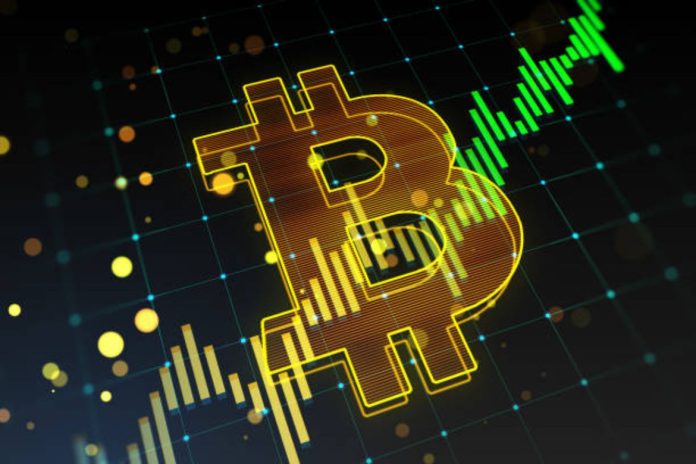Picture this: you’re at a dinner party, and the conversation turns to investments. Someone brings up gold, and another person mentions Bitcoin synergy. Suddenly, you’re in the middle of a heated debate. Which is the better store of value? Let’s dive into this riveting comparison.
Gold has been around forever—literally. Ancient civilizations used it as currency, jewelry, and even offerings to gods. It’s tangible, shiny, and universally recognized. You can hold it in your hand or stash it under your mattress if you’re feeling old-school.
Bitcoin, on the other hand, is like that new kid on the block who suddenly becomes popular overnight. Created in 2009 by an anonymous figure known as Satoshi Nakamoto, Bitcoin is digital gold. It’s decentralized and operates on blockchain technology—a fancy term for a public ledger that records all transactions.
Now let’s talk about scarcity. Gold’s supply is limited; it’s mined from the earth and takes significant effort to extract more of it. This finite nature gives it intrinsic value over time. Bitcoin also has a capped supply—21 million coins to be exact—which creates digital scarcity akin to gold’s physical limitations.
However, while gold sits pretty in vaults or jewelry boxes gathering dust (or admiration), Bitcoin’s value fluctuates wildly like a rollercoaster ride at an amusement park. One day it’s up; the next day it’s down faster than you can say “cryptocurrency.” This volatility makes some investors nervous but excites others looking for quick gains.
Security-wise, both have their pros and cons. Gold can be stolen if not stored securely—but once you have it physically, no one can hack into your safe unless they’re starring in a heist movie! Bitcoin exists online and requires strong cybersecurity measures to protect against hackers who might try cracking your digital wallet open.
Let’s chat liquidity now—how easily these assets can be converted into cash when needed urgently. Gold has always been liquid; pawnshops will take it off your hands quicker than you can blink! Selling large amounts might require dealing with brokers or auction houses though which could take time.
Bitcoin? Super liquid too! You could sell fractions within minutes using exchanges available 24/7 globally—no need for shady back-alley deals here!
What about inflation protection? Historically speaking during economic downturns or periods where fiat currencies lose value due to printing excess money (hello hyperinflation!), people flock towards gold because its value tends to remain stable—or even increase—as paper money devalues.
Bitcoin, though younger and less tested in long-term economic crises, has shown promise as a hedge against inflation. Its decentralized nature means no central authority can decide to “print” more Bitcoin, thus protecting it from the whims of monetary policy. However, its short history leaves some skeptical about its reliability in this role.
Let’s not forget accessibility. Gold requires physical handling—whether you’re buying, selling, or storing it. You need a safe place to keep it and possibly insurance to protect your investment. Conversely, Bitcoin is digital; you can buy or sell it with just a few clicks on your smartphone while lounging on your couch in pajamas. No need for vaults or armed guards!
Transaction speed is another point of comparison. If you want to transfer gold across borders, good luck! You’ll deal with customs, shipping fees, and a whole lot of paperwork. Bitcoin? It’s like sending an email—quick and easy. Within minutes (or hours during peak times), you can send Bitcoin anywhere in the world without breaking a sweat.
But what about acceptance? Gold has been accepted universally for centuries—no one questions its value when they see that gleaming metal. Bitcoin still faces skepticism from traditional financial institutions and older generations who might view it as some kind of digital Monopoly money.
The environmental impact also comes into play here. Mining gold is notorious for being environmentally destructive—think deforestation, toxic waste, and significant energy consumption. Bitcoin mining isn’t exactly green either; it requires vast amounts of electricity to power the computers solving complex algorithms that secure the network.
Then there’s the matter of anonymity—or lack thereof—in transactions involving these assets. Gold transactions are private; no one needs to know how much you own unless you tell them (or flaunt it). Bitcoin offers pseudonymity: while your name isn’t directly attached to transactions on the blockchain ledger, savvy techies can trace activities back to specific wallet addresses if they’re determined enough.
So, where does that leave us in this epic showdown between Bitcoin and gold? Both have their merits and quirks. Gold offers the comfort of tradition, tangible security, and a long history of value retention. Bitcoin brings innovation, digital convenience, and the thrill of potentially high returns.
Choosing between them boils down to your personal preferences and risk tolerance. Are you like John, seeking the tried-and-true stability of gold? Or do you resonate more with Jane’s adventurous spirit, embracing the new frontier of digital currency?









